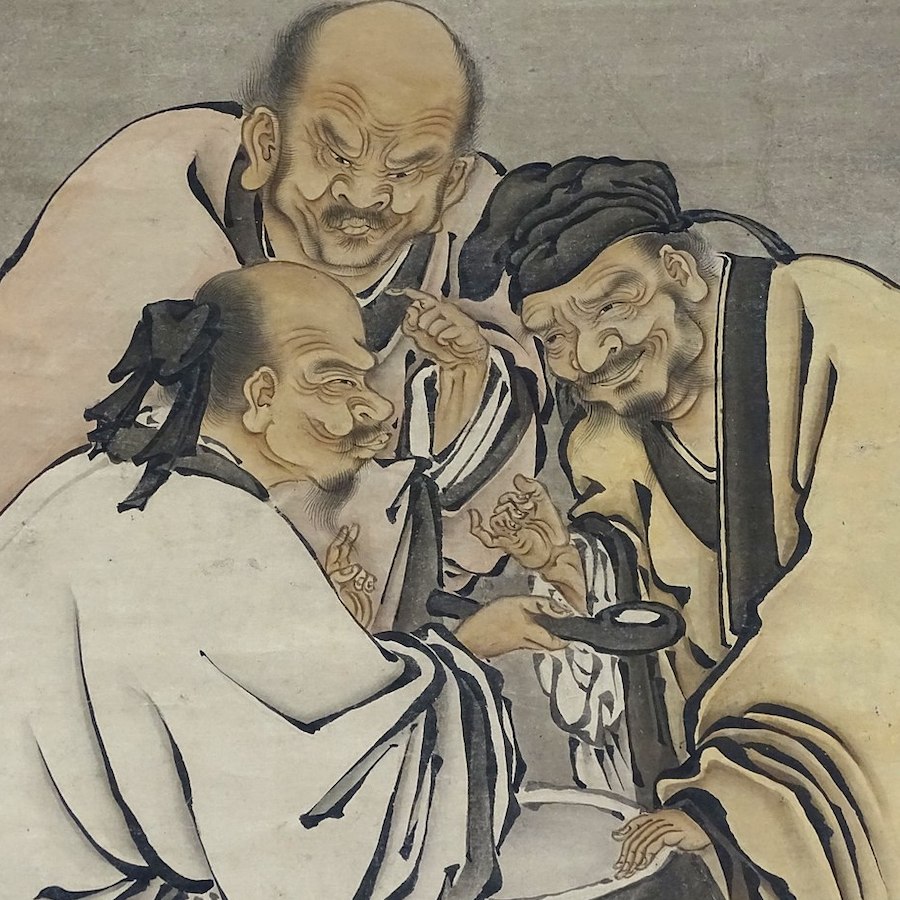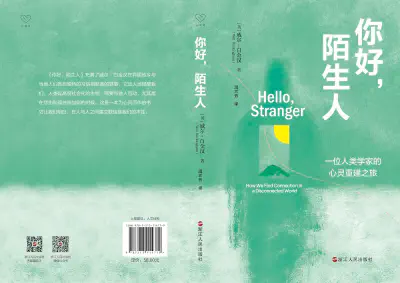What are the limits of philosophy? Where does simply thinking about stuff stop and philosophy begin? What traditions of thought are we to include in philosophy, and what should we exclude? And how should we deal with multiple traditions of thought, each of which have different approaches, different ways of asking questions, different preoccupations?
Despite Leibniz’s best efforts, philosophy as an academic discipline in Europe and America has only recently started to get to grips with non-Western traditions of thought. And whilst philosophers in the West are beginning to wake up to the existence of philosophical traditions from elsewhere, meanwhile—for the last century and a bit—East Asian scholars have been attempting to articulate the unique contributions of Chinese and Japanese traditions of thought to the strange entity that we might call ‘global philosophy’.
I have been interested in this cross-over for a long time, which is part of the reason that when I went to Sichuan University back in 2015, where I was working as visiting associate professor, one of the first things I did was to set up a cross-cultural philosophy salon, meeting every two weeks at the Bookworm book store, to generate discussion about philosophy, life, death, love, life and everything in between.
As an academically trained philosopher, I can’t help thinking that philosophy needs more of this cross-cultural discussion rather than less. But as somebody who has since left the academy (at least for the time being that is—or as someone who at least does not identify exclusively with the academy), it also seems to me that there’s a paradox here. And the paradox is this: the context in which all of this discussion of cross-cultural philosophy takes place is itself more monocultural than at any time in the past.
That is to say, I am far more like my philosophical colleagues in Beijing, Bombay or Bangui than any of us are like Socrates, or Confucius, or Zhuangzi, or Diogenes (or even, I suspect, Kant). We all—as part of this strange global guild of university workers and hangers-on—worship at the same altars. We live our lives in much the same ways. We write papers and publish them in approved academic journals. We read books. We fill in paperwork (mainly, we fill in paperwork). We teach classes. We argue in ways that are more or less mutually intelligible. We draw our salaries, or at least I used to. We think about promotions or retirement or how we got ourselves into this predicament, and how we might get ourselves out. All of this is, more or less, amounts to a single form of life, underpinned by a set of shared tacit understandings and values.
Global philosophers are, in short, far more homogenous in their ways of life than were the philosophers about whom they speak. They are even more alike in their ways of life than were the philosophers of the tiny city that was ancient Athens. If you were to pick two Athenian philosophers, and then if you were to then pick two contemporary university philosophers—say one from China and one from Britain—you would find that in terms of how they went about their lives, the latter two philosophers would very possibly be more similar than the former. And certainly, these contemporary philosophers would be more alike than either of them would be like Socrates, or Confucius, or Zhuangzi, or Kant.
Does this matter? I’m not sure. But it makes me uneasy. To what extent can we really take seriously this richness of different forms of life, practice and reflection if we are doing so exclusively within what is effectively a global monoculture? We can tend to assume that there is something about doing philosophy in a university context that is somehow more objective and value-free than doing it elsewhere, that this is a kind of contextless context, one in which we can seriously engage with any philosophy whatsoever, without thereby making any modifications in how we go about our daily lives. But I’m not so sure.
There seem to me to be two kinds of problem relating to the question of what it means to do philosophy cross-culturally. The easy problem is the question of how philosophers might, within this global academic monoculture, engage with a variety of texts and traditions. How do we understand, for example, Socrates and Kongzi’s different relationships with the question of human knowledge? How are Western philosophers to understand the logicians of the Chinese mingjia 名家, or School of Names? There are all kinds of knotty problems here, but when tackling them, we philosophers—wherever we are from, and whatever tradition we claim to speak on behalf of—never need to step outside our shared, comfortable monoculture of conferences, academic papers, bad-dress sense, lecterns, and chalk dust.
The harder problem is that of how we might allow our engagement with the ideas, texts and individuals about whom we speak to call into question the monoculture of which most of us ‘professional’ philosophers are a part. Because I can’t help thinking that if we took all this stuff as seriously as we claim we do—whether we are talking about Confucius or Zhuangzi, Socrates or Epicurus—there would be more wandering Confucians trekking, disappointed, from court to court (or from university to university), speaking truth to those in power (“Do you really need those dancing-girls, Vice-Chancellor?” — see Confucius’s Analects, 18.4), and getting repeatedly sacked for their pains. There would be more philosophical gardens springing up outside the walls of the universities, where—in emulation of Epicurus—groups of philosophers, retreating from the relentless power-play of the political arena, could share friendship, small pots of cheese, and glasses of wine. In the marketplaces of the world, there would be barrels out of which emanated the unsettling sounds of contemporary Cynics, going about that which was natural (occasionally, these Cynics would gate-crash academic conferences, brandishing plucked chickens). And the mountains fastnesses would be full of formerly tenured professors, persuaded by their long study of Zhuangzi that they should spend the rest of their days like turtles, dragging their tails in the mud.
What are the philosophical possibilities and questions that are closed down by a commitment to carrying out philosophy as a part of an academic lifestyle? What are the possibilities that this global monoculture excludes? Can we truly claim to be the heirs of Confucius or Epicurus, Socrates or Zhuangzi, if we are all, more or less, doing the same thing (particularly as this ‘same thing’—is so very weird and so frequently unexamined)? And finally, even if we can claim to be heirs of those on behalf of whom we speak, can we be sure that these philosophers would hold us in the same esteem we hold them?
Image: Three Sages Tasting Vinegar (16th Century). Public domain via Wikimedia Commons.



